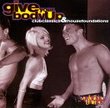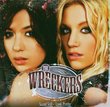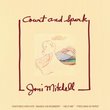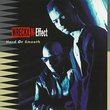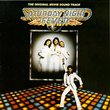| All Artists: Yes Title: 90125 Members Wishing: 2 Total Copies: 0 Label: Elektra / Wea Release Date: 2/24/2004 Album Type: Extra tracks, Original recording remastered Genres: Pop, Rock, Classic Rock Styles: Progressive, Progressive Rock, Psychedelic Rock, Album-Oriented Rock (AOR), Arena Rock Number of Discs: 1 SwapaCD Credits: 1 UPCs: 081227379629, 4943674063932, 603497995219 |
Search - Yes :: 90125
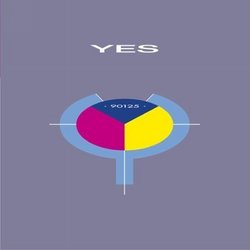 | Yes 90125 Genres: Pop, Rock, Classic Rock
No Description Available No Track Information Available Media Type: CD Artist: YES Title: 90125 Street Release Date: 02/24/2004 |
Larger Image |
CD DetailsSynopsis
Product Description No Description Available No Track Information Available Media Type: CD Artist: YES Title: 90125 Street Release Date: 02/24/2004 Similarly Requested CDs
|
CD ReviewsChange changing places Evil Lincoln | Dayton, Ohio | 02/27/2004 (3 out of 5 stars) "First off, anyone cynical about Rhino releasing Yes albums for the umpteenth time should shut up after listening to the remaster of 90125. The sound is so crisp and clear- "Changes" and "Hearts" are prime examples of the incredibly improved sound.What about the actual music on the album? There's a lot of great stuff on 90125, but there's also mediocre stuff to drag it down. "Hold On," "City Of Love," and "Our Song" are all forgettable cookie-cutter pop rock songs. Most of the other songs hold up well, "Changes" is good, but I really can't stand Trevor Rabin's voice. "Hearts" is a great, nearly 8-minute fusion of progressive rock and pop rock. "Leave It" is a vocal tour de force which you can't help but to sing along with, and "Cinema" is a blistering instrumental led by Alan White's powerful drums.And who could forget that number one hit "Owner Of A Lonely Heart?" It's fantastic, and the fact that so many people recognize Yes only for that song doesn't detract a bit. But the best song on the album is "It Can Happen," with its upbeat sitar intro and excellent chorus sung in part by Chris Squire (I'm partial to any Yes song with strong vocal presence from him).The bonus tracks offered on 90125 aren't bad either. The pre-Jon Anderson version of this incarnation of Yes was dubbed Cinema, and there's three cuts from them on here- "Make It Easy," "It's Over," and the original version of "It Can Happen." They're all good, especially "Make It Easy," which has a very powerful guitar part. The a capella version of "Leave It" is actually better than the studio version- honestly, it should've been the one included on the album instead. The only sour point on the bonus tracks is the "extended remix" of "Owner Of A Lonely Heart," which is pointless- I can't even really tell any connection between this and the original song.Every Yes fan should run out and get this remaster right now, regardless of their like or dislike of YesWest- the sound quality is so improved it's like listening to a whole new album. I wish the excellent follow up to this, Big Generator, would receive the remaster treatment, as it is in dire need of it, but that seems unlikely." The Yes comeback that's (mostly) perfect. Wil Harley | Nashville, TN | 12/23/2005 (4 out of 5 stars) "First off, the Rhino remaster sounds great. Very clear & crsip. Now, first off, you shouldn't go into this CD expecting the Yes sound of 1970-1978. That was a whole `nother group. This is not progressive, or at least not in the sense of 70's style Yes, ELP, King Crimson, etc. It's honestly a very different sounding record - yes, it's got 80's hard rock influences & synths, but the rhythms and melodies take on a pseudo-prog feeling. I guess you could compare it to early 80's style Genesis pop/rock, only a thousand times better. And that's a stretched comparison. No, I'd have to say that YesWest carved out a unique sound. Too bad they only had 2 albums in them. By and large, the group wasn't "true" Yes, as leader and guitarist Trevor Rabin took much of the reigns on production and songwriting. After 1980's Drama, Yes officially broke up. Steve Howe and Geoff Downes went on to form pop/rock group Asia, and bassist Chris Squire and drummer Alan White did some work with Jimmy Page which, unfortunately, nothing came of. Squire and White met Rabin & formed a new group called Cinema, and it was here that most of the songwriting was done, including Rabin's authoring of the mega-hit "Owner of a Lonely Heart." In 1983, the band performed for former lead singer Jon Anderson, who liked what he heard, and brought Anderson to the group. And so the (unintentional) Yes reformation was complete. In December of 1983, the group recorded this album. Owner of a Lonely Heart - the radio hit, going #1 in January of 1984. No denying it's extremely catchy, what with its repeating bass line & rapid synth breaks. An interesting mute guitar breakdown in the middle prevents it from dragging on too much, making for the perfect 80's rock anthem. It was the song that put Yes (back) on the map. Hold On - a hidden gem here, this one's a slower, more hard-rocking number. It's guitar heavy, and it's got a weird, yet catchy, synthesized vocal break in the middle with some of the oddest lyrics (this one had to have at least some Anderson influence - "how they drown in stylistic audacity"??) It Can Happen - another hit single from the album, a recognizable electric sitar backing the anthemic choruses and stop breaks make for a unique sounding, if somewhat specially-crafted, radio hit. Squire takes lead vocals here for a nice change. Changes - this one starts off with a marimba-&-synth four-note opening riff, then descends into a mellow mid-tempo ballad. It just seems to me that it's got a lot it wants to say, but doesn't get around to saying it. Also, Jon Anderson's got the perfect prog-rock voice, but here I don't think it works as well as Rabin's might have. Still, the instrumentation's excellent, so it's a fair deal. Cinema - one of my top five rock instrumentals, there's a reason it was a Grammy nomination. Hard-driving, in-your-face rock with exemplary drumming by White and searing guitar work make you wish they'd done more "experimental" stuff like this. Short & sweet. Leave It - the last of the singles, this had to be the oddest radio cut ever produced. With an a cappella vocal intro that hearkens back to "Your Move," it segues into a vocal tour-de-force, with classic Yes harmony after harmony. They could have laid off the electronic drums here, but that might be part of what makes this song so cool. I don't exactly know what they're saying (leave what?), but it's a very good number no less. Our Song - a decent, if somewhat generic, 80's rocker. This is one of the songs that, if it wasn't Yes providing the stop-rhythms & harmonies, would have completely bombed. It rambles, and it's a bit cheesy (especially with that synthesized organ - where did they get that thing?), but at least it's not too long. City of Love - this one shows Anderson taking lead here, and it's not bad. Some nice heavy guitar here, complete with synth bass. Overall though, Anderson just didn't have the best vocals for a straight-ahead rock group - he was much better off doing new-agey "Olias of Sunhillow"-style material. This one tends to drag, and I don't really know what happens to the guitar near the very end, but it's alright. Hearts - the longest song on the album (the "epic" of the album,) this one sounds like it could have come off a JA solo album. That's not really bad though, as it's an interesting album ender. Clocking in at 7:54, this is essentially a Yes epic, updated for the 80's. Synth and Harmony laden, it's got appeal for the prog-rock fans out there (it won't rival any original Yes stuff, thought to give it credit it doesn't try, either.) Mainstream rock fans, however, might find that it drags. Which, if you compare it to the rest of the album, it really does. The playing on it's good, if somewhat repetitive, and the lyrics are typical oblique Anderson-esque material (not his best, either - he manages to say so much while saying so little.) But, they could've picked a much worse song to close the album out with. It just seems to me that they were trying to say here, "see, look, we can still play prog, we'll prove it to you!" As for the bonus tracks, we get a single version of Leave It, which is nothing special (just a shortened form of the original,) and an A Cappella version, which actually plays out very nicely, as it's a vocal-heavy song to begin with. We also get Make It Easy, a track leftover from the Cinema group. This is a hidden gem if I've ever heard one - it's classic 80's rock, complete with lead synth lines, heavy guitar, and huge, anthemic vocal lines, but it works out so well. I honestly don't see why this was left off the album - it could've gone much further than, say, "It Can Happen." We get It's Over, which is one track that I can see why it was discarded - totally generic. Rounding off these, we get a remix of "Owner of a Lonely Heart." This must have been the "dance club" remix, as it sounds totally out of place on the album - no lyrics, drum machine, silly vox vocals, eight-and-a-half minutes long. It's a decent novelty piece to have though. So, all in all, 90125 makes for some of the most interesting 80's-style rock that one can listen to. High level of playing talent, combined with some insanely catchy pop hooks & MTV-friendly appeal literally saved the band, and that's something all fans can appreciate, whether you like Yes of yore or you're a "Generator." Sure, in some places the progressive and the hard rock influences clash. But that's not all the time, and when it works, it make for some excellent listening." The Re-Birth Of Yes Alan Caylow | USA | 01/20/2004 (5 out of 5 stars) "In 1983, Yes pulled off one of the greatest comebacks in rock history. The group had officially disbanded in 1981, after the 1980 album "Drama" and it's subsequent tour, with the various members of the "Drama" line-up moving on to other projects. "Drama" vocalist Trevor Horn became a music producer, guitarist Steve Howe & keyboardist Geoff Downes went on to form the supergroup Asia, and bassist Chris Squire & drummer Alan White hooked up with South African guitarist Trevor Rabin to form a band that *was* to have been called Cinema, with Horn onboard to produce their debut album....But something happened to Cinema's album-in-progress. Chris Squire got a phonecall one day from his good friend---and former Yes vocalist---Jon Anderson, who was curious to hear the new music that Squire, White, & Rabin were working on. After hearing the tape that Squire sent him, Anderson was excited about the material, and asked Squire if he could sing on the new album. He did, and, for the coup-de-grace, original Yes keyboardist Tony Kaye was also reeled in to help out on the keyboards...and Yes was re-born. The new album, entitled "90125" (named after the barcode number on the back of the album), became Yes' biggest-selling album ever, hitting #5 on the U.S. album chart, and also giving the band a surprise #1 hit single, "Owner Of A Lonely Heart," and even a Grammy award for the instrumental track, "Cinema" (hint hint!).Although a huge smash for the band, "90125" also divided the Yes fanbase in the same way that the Genesis fanbase was divided by the group's "Invisible Touch" album, with many fans complaining that the band had sold out and lost touch with it's progressive-rock roots. "90125" presented Yes with a glossier, streamlined rock sound, with certain elements of pop thrown into the mix, and no traces whatsoever of the group's prog-rock epics of the past. Still, there were certainly enough Yes fans out there who were excited by the group's new sound (myself included), and besides, it was just great to have Yes back in action at all, regardless of what their new music sounded like. And, as far as *this* Yes fan is concerned, "90125" is a definitive Yes classic. The band may not be so "proggish" on this one, but make no mistake, they still know how to rock. Even with a new musical approach, the heart & soul of Yes still remains firmly intact on "90125.""Owner Of A Lonely Heart," the catchy #1 hit song from the album, sets the tone right away with a killer guitar riff from Trevor Rabin, a groovy beat, tight musical interplay from the group, awesome radio-friendly production, and a terrific lead vocal from Jon Anderson. It's a classic Yes song. Other great Yes rockers follow it: "Hold On," "It Can Happen," and "Changes"---and that's only the first half of the disc! The band literally come *charging* in for the second-half with the blazing instrumental, "Cinema," followed by the glorious vocal workout, "Leave It" (a Top 40 hit). "Our Song" is the closest that Yes get to pop music on the album, but it's still a fine song. "City Of Love" is another great rocker, with a booming "thud-thud" groove from Squire and Rabin, and the final tune, "Hearts," is simply a beautiful Yes number, ending the album on a very memorable note. The band sound totally refreshed on "90125," with Anderson's perfect falsetto voice, Squire's big basslines, White's killer drumming, Kaye's cool keyboard work, and Trevor Horn's expert production. And let's give credit to guitarist Trevor Rabin where credit is due---he's a fantastic guitar player, and an excellent singer & songwriter as well. He definitely played an important role in Yes' comeback, and any Yes purist who criticizes him about "ruining" the band should be tossed out on their heads. With "90125," Yes re-invented themselves in a huge, HUGE way. It's an awesome album, one of the group's very best, and an instant Yes classic. To quote a line from "Owner Of A Lonely Heart," it will excite, it will delight."
|

 Track Listings (15) - Disc #1
Track Listings (15) - Disc #1